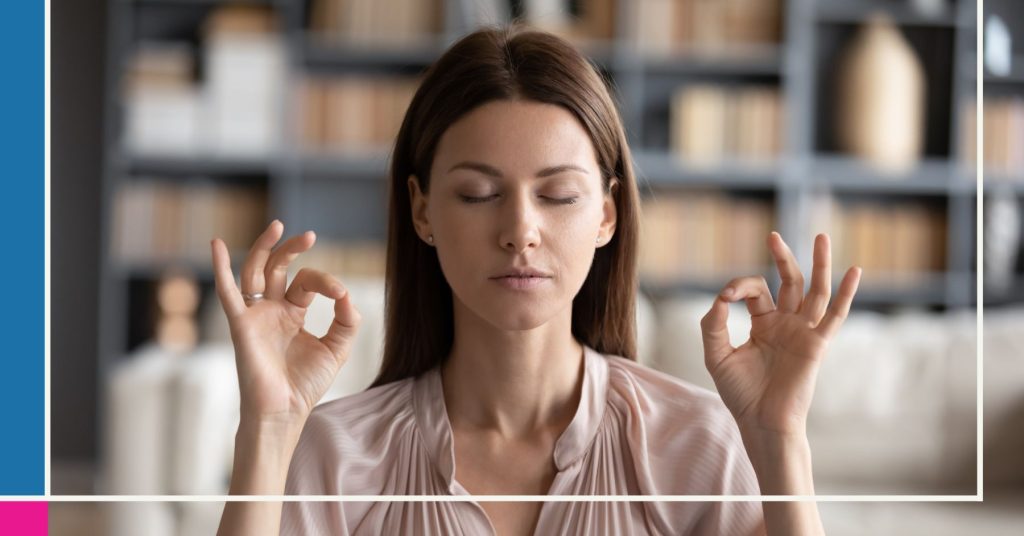Introduction
Recognising the importance of Mental Health Treatments and Help is crucial, especially for individuals over 40 and 50. As we age, the demands of life, work, and personal responsibilities can significantly impact our mental health. Understanding effective strategies for maintaining a healthier mind can lead to a better quality of life. This article explores seven effective strategies that can help you achieve a healthier mind and overall well-being.
Understanding Mental Health Treatments
Understanding Mental Health Treatments and Help is the first step towards better mental health. There are various treatments available, including therapy, medication, and lifestyle changes. Each individual’s needs are unique, and a personalised treatment plan is essential for effective management of mental health conditions.
Mental health treatments encompass a wide range of approaches. Therapy, such as cognitive-behavioural therapy (CBT) and psychotherapy, focuses on talking through issues and developing coping strategies. Medication can be prescribed to help manage symptoms, and lifestyle changes can support overall mental well-being. Combining these treatments often leads to the best outcomes, making it crucial to consult with healthcare professionals to develop a comprehensive plan tailored to your needs.
Professional Therapy
Professional therapy is a cornerstone of Mental Health Treatments and Help. Different types of therapy, such as cognitive-behavioural therapy (CBT), psychotherapy, and other evidence-based approaches, can significantly improve mental health. These therapies involve working with a mental health professional to identify and change negative thought patterns, develop coping strategies, and address emotional issues.
Cognitive-behavioural therapy (CBT) is particularly effective for treating anxiety and depression. It helps individuals identify and challenge distorted thinking patterns and develop healthier ways of thinking. Psychotherapy, or talk therapy, provides a safe space to explore emotions, understand underlying issues, and develop effective coping mechanisms. Engaging in professional therapy can lead to profound improvements in mental health and overall well-being.
Medication Management
Medication management is an essential aspect of Mental Health Treatments and Help. Understanding who prescribes medication for mental health and who can prescribe medication for mental health is crucial for effective treatment. Various healthcare professionals, including psychiatrists, primary care physicians, and nurse practitioners, can prescribe medication for mental health conditions.
Psychiatrists are medical doctors specialising in mental health and are often the primary prescribers of psychiatric medications. Primary care physicians can also prescribe medication and may be the first point of contact for individuals seeking help. Nurse practitioners, particularly those specialising in mental health, can prescribe medication and provide ongoing management. Medication can be highly effective in managing symptoms of mental health conditions, but it is essential to work closely with a healthcare provider to find the right medication and
dosage.
Healthy Lifestyle Changes
Implementing healthy lifestyle changes is a fundamental part of Mental Health Treatments and Help. Lifestyle factors such as diet, exercise, sleep, and mindfulness practices can significantly impact mental health. Making positive changes in these areas can enhance overall well-being and support mental health.
Diet: Eating a balanced diet rich in fruits, vegetables, lean proteins, and whole grains can improve physical health and reduce stress. Avoiding excessive caffeine, sugar, and processed foods can also positively affect mental health.
Exercise: Regular physical activity, such as running, walking, or strength training, releases endorphins and reduces stress. Exercise improves mood, boosts energy levels, and enhances sleep quality.
Sleep: Prioritising adequate sleep is crucial for mental health. Establishing a regular sleep routine, creating a restful environment, and avoiding screens before bedtime can improve sleep quality.
Mindfulness Practices: Incorporating mindfulness practices such as meditation, deep breathing exercises, and yoga can reduce anxiety and improve mental clarity. Mindfulness helps individuals stay present, manage stress, and develop a more positive outlook on life.
Social Support Systems
A strong social support system is vital for Mental Health Treatments and Help. Understanding what can friends provide to affect mental health positively can help individuals build and maintain supportive relationships. Friends and family can provide emotional support, encouragement, and practical assistance, which are crucial for managing mental health issues.
Emotional Support: Friends and family offer a listening ear, empathy, and understanding, which can alleviate feelings of loneliness and stress. Sharing concerns with loved ones can provide relief and new perspectives.
Encouragement: Positive reinforcement from friends and family can motivate individuals to seek help, stick to treatment plans, and make healthy lifestyle changes. Encouragement can boost self-esteem and resilience.
Practical Assistance: Friends and family can help with daily tasks, provide transportation to appointments, and offer companionship. Practical support reduces stress and helps individuals focus on their mental health.
Building and maintaining strong social connections is essential for mental well-being. Encouraging open communication, spending quality time with loved ones, and seeking support when needed can significantly improve mental health.
Stress Management Techniques
Effective stress management techniques are critical components of Mental Health Treatments and Help. Stress is a common trigger for mental health issues, and learning how to manage it effectively can prevent it from escalating. Here are some techniques that can help:
Meditation: Practicing meditation can calm the mind, reduce anxiety, and improve focus. Regular meditation helps individuals develop a greater sense of inner peace and resilience.
Deep Breathing Exercises: Deep breathing exercises can quickly reduce stress and promote relaxation. Techniques such as diaphragmatic breathing and progressive muscle relaxation are simple yet effective.
Relaxation Methods: Engaging in relaxation methods such as progressive muscle relaxation, guided imagery, or listening to soothing music can reduce stress and promote a sense of well-being.
Time Management: Organising daily tasks, setting realistic goals, and taking regular breaks can reduce stress levels. Effective time management allows individuals to balance work, personal life, and self-care.
By incorporating these stress management techniques into daily routines, individuals can reduce stress levels and improve their overall mental health.
Alternative and Complementary Treatments
Exploring alternative and complementary treatments is an important aspect of Mental Health Treatments and Help. These treatments can be used alongside traditional methods to enhance mental well-being. Here are some popular options:
Yoga: Yoga combines physical postures, breathing exercises, and meditation to promote relaxation and reduce stress. Regular yoga practice can improve flexibility, strength, and mental clarity.
Meditation: Meditation practices such as mindfulness meditation, loving-kindness meditation, and transcendental meditation can reduce anxiety, improve focus, and enhance overall well-being.
Acupuncture: Acupuncture involves inserting thin needles into specific points on the body to balance energy flow. It is believed to reduce stress, alleviate pain, and improve mental health.
Herbal Supplements: Herbal supplements such as St. John’s Wort, valerian root, and ginseng are used to manage symptoms of anxiety and depression. It is important to consult a healthcare provider before using herbal supplements.
While alternative and complementary treatments can provide additional support for mental health, it is essential to use them in conjunction with traditional treatments and under the guidance of a healthcare professional.
Educational Resources and Self-Help Tools
Continuous learning and the use of self-help tools are vital for maintaining mental health. Here are some valuable educational resources and tools:
Books: Reading books on mental health, stress management, and personal development can provide valuable insights and practical advice. Look for reputable authors and evidence-based information.
Apps: Mental health apps such as Headspace, Calm, and Moodpath offer guided meditations, mood tracking, and cognitive-behavioural exercises. These tools can support daily mental health practices.
Online Courses: Enrolling in online courses on mental health, mindfulness, and stress management can deepen understanding and provide structured learning. Websites like Coursera, Udemy, and Khan Academy offer various courses.
Support Groups: Joining support groups, either in person or online, can provide a sense of community and shared experiences. Support groups offer emotional support and practical advice.
By using these educational resources and self-help tools, individuals can continue to learn about mental health and develop effective strategies for maintaining well-being.
Conclusion
Understanding the key signs and symptoms of stress affecting mental health is crucial for maintaining overall well-being, especially for individuals over 40 and 50. Recognising these indicators early can help you take proactive steps to manage stress before it escalates into more severe mental health issues.
By being aware of the physical, emotional, cognitive, and behavioural symptoms of stress, you can implement effective strategies to reduce its impact. These strategies include regular exercise, healthy nutrition, adequate sleep, mindfulness practices, and strong social support networks. If stress becomes overwhelming, don’t hesitate to seek professional help.
At Midlife Runners Paradise, we are dedicated to helping you achieve a balanced, active lifestyle that promotes both physical and mental health. By incorporating these healthy practices into your daily routine, you can enhance your resilience, joy, and overall quality of life. Remember, it’s never too late to make positive changes for your health and happiness.
To help you get started, we invite you to join our Free 10-Day Stress Management Challenge. This free challenge provides daily tips and activities designed to help you manage stress effectively and improve your mental health. Sign up now and take the first step towards a healthier, happier life! .
By providing practical strategies and resources, this article aims to empower you to take control of your mental health and lead a more fulfilling life.





